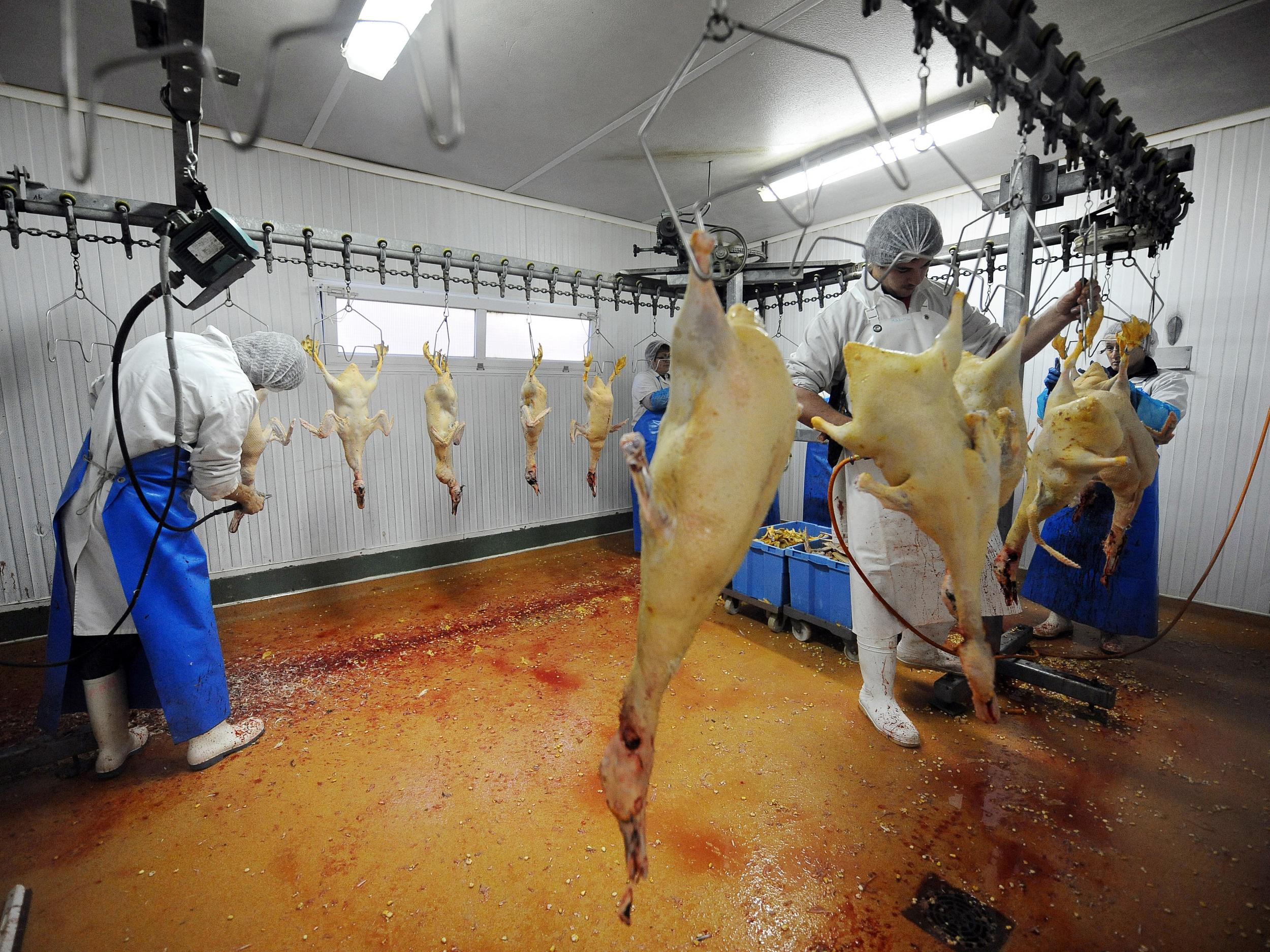Brexit: Michael Gove under pressure to ban imports of foie gras after Britain leaves EU
MPs, vets and activists argue leaving the EU is a chance to make Britain free of the livers of force-fed geese

MPs and activists have launched a drive for a post-Brexit ban on imports of foie gras – the livers of ducks that have been force-fed.
Campaigners believe the UK leaving the EU is an opportunity to close the door on the “delicacy” considered so cruel that it is illegal to produce it in Britain.
A Tory MP at the forefront of the new campaign says he believes there is “a very good chance” of making Britain foie gras-free.
Michael Gove, the environment secretary and Brexiteer, has signalled he is open to halting its importation after Brexit, and now several MPs, veterinary experts and animal welfare experts have joined forces to urge him to do so.
Labour has already said it will halt foie gras imports, and included the pledge in a list the party published early this year of 50 proposals to improve animal welfare.
Foie gras is the liver of ducks or geese that have been enlarged through force-feeding and then served as pâté, terrine or as part of a meal. It is high in fat.
Producing foie gras has been judged to cause too much suffering to be allowed in Britain - but according to Statista, 219,000 tonnes of it are imported each year, mostly from dozens of farms in France and Spain.
Conservative MP Henry Smith, who argued the case for a ban to a group of MPs and campaigners, said: “Force-feeding is an awful way to treat these gentle creatures. I don't want to be complacent but I think there's a very good chance Michael Gove will impose a ban. There's a groundswell of opinion on this that the government would do well to listen to.”
Toni Shephard, director of animal protection group Animal Equality, which has documented the effects on birds of the technique, said the group had had harrowing findings when it investigated 12 foie gras farms.

The process involves feeding ducks through tubes put down their gullets several times a day, called gavage, designed to swell the birds’ livers to 10 times their natural size.
Critics have long said there is evidence that birds suffer perforated and damaged oesophaguses, with scarring, and animal-welfare campaigners have published photos showing geese with bloodied bodies.
Force-feeding has prompted so much opposition that one bird farmer in Spain produces “ethical” foie gras, made from livers of birds that are well fed rather than force-fed.
Under EU rules, Britain cannot unilaterally stop any legal trade, regardless of animal-welfare concerns, and Mr Gove has previously said Brexit is a chance to outlaw the export of live animals for slaughter.
Biologist and farm animal expert Professor Donald Broom, of the Department of Veterinary Medicine at Cambridge University, said force-feeding was “abhorrent” and the cramped housing the birds are kept in caused intense mental and physical suffering, with birds fearing the approach of workers about to carry out the procedure, and many attempting to avoid having the pipes put down their throats.
“They have to overcome their gag reflex for the pipe,” he said. “They overheat because their livers are so large.”
After the tubes are removed, birds collapse with exhaustion and pain.
Most ducks are brought almost to the point of death from liver disease but up to 10 per cent of birds - that is millions - die during the two-week gavage period, he said.
Emma Milne, a vet who regularly appears on TV as a guest expert, branded Britain’s importing foie gras “indefensible”.
A ban is backed by TV wildlife host Chris Packham, Downton Abbey actor Peter Egan, comedian Ricky Gervais, actress Joanna Lumley, Harry Potter star Evanna Lynch and bird enthusiast and former comedy star Bill Oddie.
Egan told The Independent foie gras was “disgusting and horrifying” and should be banned as soon as possible.
Kerry McCarthy, a former shadow environment secretary, said: “You can't possibly have something that is beyond the pale if we make it but is fine if it's made overseas.”
Oddie five weeks ago delivered a petition to Parliament signed by more than 70,000 people calling for a ban on imports. The petition was launched in June after 77 per cent of respondents to a poll backed a ban.
Lynch, who played Luna Lovegood in the blockbuster films, has posted on Instagram: “Foie gras is a brutally cruel practice that needs to be stopped and Animal Equality are working to gain 75,000 signatures to show the government that the public won’t tolerate this horrific practice.
“Michael Gove is currently deciding whether or not to ban foie gras imports from Britain so now is the time to speak up against it. Come on, Michael Gove!!”
The Independent has asked European Federation of Foie Gras Producers to comment on the effect of a ban, as well as Harrods and Fortnum and Mason, which sell foie gras.
Join our commenting forum
Join thought-provoking conversations, follow other Independent readers and see their replies
Comments